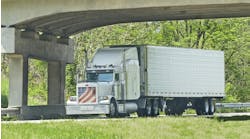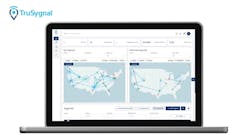LOUISVILLE, KY. You could have heard a pin drop during the presentation by keynote speaker T. Boone Pickens at the National NGV (Natural Gas Vehicle) Fleet Summit here in Louisville, KY, yesterday presented by Clean Energy along with other co-sponsors and organized by Gladstein, Neandross & Assoc.
Pickens, founder and chairman of BP Capital Management, best-selling author, energy advisor to U.S. presidents and winner of dozens of awards for his achievements, spoke to a spellbound audience on reducing America’s current dependence on foreign oil for more than 70% of its oil needs. His message was clear, blunt and urgent: the United States has to end its dependence on foreign oil now or prepare to suffer the consequences of high prices and even scarcity in the future.
“We have got to get off OPEC oil [which accounts for about 1/3 of the oil used in the U.S.], or at least cut it way down,” Pickens said. He went on to explain that China would soon have a refinery online and that Venezuela, no fan of the U.S., could then send its oil to China rather than the U.S. for refining, creating a serious oil shortfall in the U.S. This would be further exacerbated by the ongoing decline in oil production in Mexico.
According to Pickens, oil reserves are in decline worldwide, including in the Middle East. “Oil production is in decline at about 7% per year,” he said, adding that the only way remaining for oil-exporting dependent nations to balance their budgets in the future will be to raise prices. “The world uses about 85 million barrels of oil a day,” Pickens said. “The U.S. uses about 21 million barrels per day, or one-quarter of the world’s oil production. We had better look at the problem as us, as Americans. [In this case] we can’t think globally.”
For Pickens, natural gas is the linchpin in the plan to wean North America off foreign oil, but he was firm in his support for the development of various other domestic energy alternatives, as well. “I am for America,” he said. “We have to get off their resources and get on ours. Otherwise, in fourteen years, if we have no energy plan, we will be importing 75% of our oil and paying $300 per barrel.”
Unlike oil reserves, the U.S. is rich in natural gas resources, Pickens explained, which is what makes natural gas such an important part of the energy independent equation for America. “We have the largest natural gas resources in the world,” he said. The U.S. has “easily a 200-year supply” of natural gas reserves. “We are a world energy player,” Pickens said, noting that natural gas is not only abundant domestically, but cleaner and cheaper than diesel and gasoline.
Pickens voiced impatience with comments about the lack of a natural gas fueling infrastructure as an obstacle to implementing the “Pickens Plan” for switching trucks in large numbers from diesel to natural gas to help achieve energy independence. “Who is going to pay for the fueling infrastructure?” he said. “We will. The people who sell fuel will provide the infrastructure. It isn’t that hard.”
He also had little sympathy for complaints that environmental protections were getting in the way of domestic oil drilling. “I don’t think you can get enough oil out of all the protected areas to make a difference,” Pickens said. “Remember, we can only move two million barrels of oil a day out of the Arctic. That is a big number yes, but not if you put it into perspective [with the daily per barrel usage numbers]. You always have to step back and think about the context, about the big picture.”
According to Pickens, the clock is ticking and time is running out when it comes to solving America’s pending energy crisis. In as soon as two or three years, he noted, global declines in oil supplies and shifts in market demand will create changes, like it or not. Hence, his call for immediate action “When is the best time to plant a tree?” he asked by way of illustration. “Twenty years ago. When is the second-best time to plant a tree? Now.
“If you don’t have an energy plan, you do,” he noted. “It is foreign oil. That is the way it is going to come down. At least with natural gas, you have an option. You may not like that plan, but it is a plan.” Pickens, who will be 82 years old in May, has been supporting natural gas as the path to an energy independent future since 1988. He is working now to support passage of the NAT Natural Gas Act, which would provide more than ten years of income tax credits (up to $65,000 per vehicle) for the purchase of qualifying, natural gas-powered trucks.
According to organizers, the summit drew approximately 200 people, including more than 100 representatives from North American fleets.


